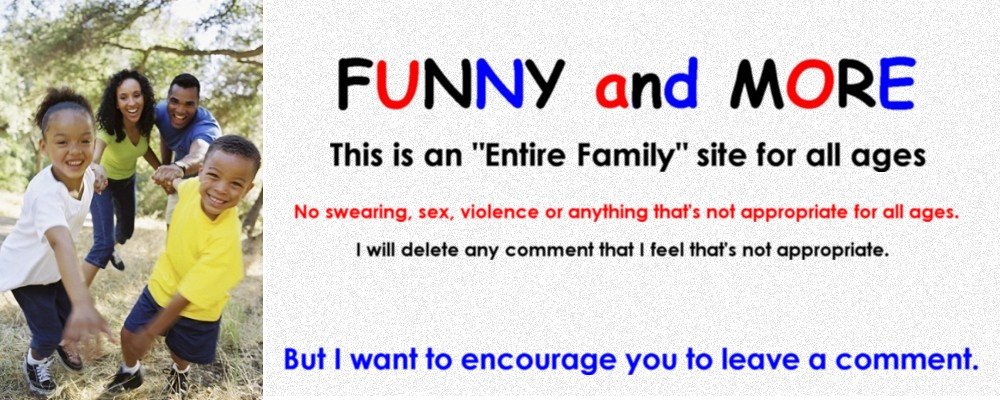.
Tuesday, March 31, 2009
Music Juke Box
Just click on a year and listen to your favorite songs.
1940’s JuKeBoX 1955 JuKeBoX
1956 JuKeBoX
1957 JuKeBoX
1958 JuKeBoX
1959 JuKeBoX
1960 JuKeBoX
1961 JuKeBoX
1962 JuKeBoX
1963 JuKeBoX
1964 JuKeBoX
1965 JuKeBoX
1966 JuKeBoX
1967 JuKeBoX
1968 JuKeBoX
1969 JuKeBoX
1970 JuKeBoX
1971 JuKeBoX
1972 JuKeBoX
1973 JuKeBoX
1974 JuKeBoX
1975 JuKeBoX
1976 JuKeBoX
1977 JuKeBoX
1978 JuKeBoX
1979 JuKeBoX
.
Dog sings and accompanies himself on keyboard
The amazing and furry Porter 9-Volt, the musically inclined canine, performs a quick composition entitled "bow-wow-ruff-ruff."
.
.
If You Can Raed Tihs, You Msut Be Raelly Smrat
Chances are you've seen this in your inbox:
"Aoccdrnig to a rscheearch at Cmabrigde Uinervtisy, it deosn't mttaer in waht oredr the ltteers in a wrod are, the olny iprmoatnt tihng is taht the frist and lsat ltteers be at the rghit pclae. The rset can be a toatl mses and you can sitll raed it wouthit porbelm. Tihs is bcuseae the huamn mnid deos not raed ervey lteter by istlef, but the wrod as a wlohe."
.
Chances are you also understand it. It purports that the order of the letters inside a given word doesn't matter, as long as the first and last letters of each word are in the right place.
You can read the words because the human mind reads words as a whole, and not letter-by-letter.
Well, that's what it says. But while it's entertaining and ego-boosting (that is, if you can read it), it ain't exactly so.
The e-mail, while partially correct in its overall hypohsetis — um, hypothesis — is "very irresponsible in several important ways," says Denis Pelli, professor of psychology and neural science at New York University.
First of all — oops — there was never a study done at Cambridge University. And therein lies a tale.
The e-mail was originally sent around without mentioning Cambridge; it got added after the Times of London interviewed a Cambridge neuropsychologist for comment.
Matt Davis, a senior research scientist at Cambridge University's Cognition and Brain Sciences Unit, spent some time tracking down the origin of this letter-transposition story.
He found that it comes from a letter written in 1999 by Graham Rawlinson, a specialist in child development and educational psychology, to New Scientist magazine in response to an article written about the effects of reversing short chucks of speech.
.
"Aoccdrnig to a rscheearch at Cmabrigde Uinervtisy, it deosn't mttaer in waht oredr the ltteers in a wrod are, the olny iprmoatnt tihng is taht the frist and lsat ltteers be at the rghit pclae. The rset can be a toatl mses and you can sitll raed it wouthit porbelm. Tihs is bcuseae the huamn mnid deos not raed ervey lteter by istlef, but the wrod as a wlohe."
.
Chances are you also understand it. It purports that the order of the letters inside a given word doesn't matter, as long as the first and last letters of each word are in the right place.
You can read the words because the human mind reads words as a whole, and not letter-by-letter.
Well, that's what it says. But while it's entertaining and ego-boosting (that is, if you can read it), it ain't exactly so.
The e-mail, while partially correct in its overall hypohsetis — um, hypothesis — is "very irresponsible in several important ways," says Denis Pelli, professor of psychology and neural science at New York University.
First of all — oops — there was never a study done at Cambridge University. And therein lies a tale.
The e-mail was originally sent around without mentioning Cambridge; it got added after the Times of London interviewed a Cambridge neuropsychologist for comment.
Matt Davis, a senior research scientist at Cambridge University's Cognition and Brain Sciences Unit, spent some time tracking down the origin of this letter-transposition story.
He found that it comes from a letter written in 1999 by Graham Rawlinson, a specialist in child development and educational psychology, to New Scientist magazine in response to an article written about the effects of reversing short chucks of speech.
.
Taxes
TAXING SITUATIONS... A visitor from Holland was chatting with his American friend and was jokingly explaining about the red, white and blue in the Netherlands' flag. "Our flag symbolizes our taxes," he said. "We get red when we talk about them, white when we get our tax bill, and blue after we pay them." "The same with us," the American said, "only we see stars, too."
.
VISITING THE IRS... A man walked into the tax collector's office and sat down and smiled at everyone. "May I help you?" said the clerk in charge. "No," said the man. "I just wanted to meet the people I have been working for all these years."
.
DEDUCTION... A stockbroker received notice from the IRS that he was being audited. He showed up at the appointed time and place with all his financial records, then sat for what seemed like hours as the auditor pored over them. Finally the IRS agent looked up and commented, "You must have been a tremendous fan of Sir Arthur Conan Doyle." "Why would you say that?" asked the broker. "Because you've made more brilliant deductions on your last three returns than Sherlock Holmes made in his entire career."
.
.
VISITING THE IRS... A man walked into the tax collector's office and sat down and smiled at everyone. "May I help you?" said the clerk in charge. "No," said the man. "I just wanted to meet the people I have been working for all these years."
.
DEDUCTION... A stockbroker received notice from the IRS that he was being audited. He showed up at the appointed time and place with all his financial records, then sat for what seemed like hours as the auditor pored over them. Finally the IRS agent looked up and commented, "You must have been a tremendous fan of Sir Arthur Conan Doyle." "Why would you say that?" asked the broker. "Because you've made more brilliant deductions on your last three returns than Sherlock Holmes made in his entire career."
.
Subscribe to:
Comments (Atom)




